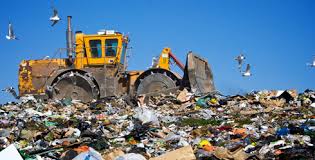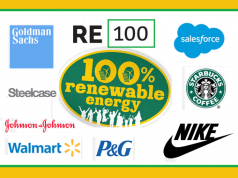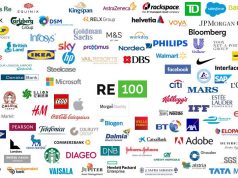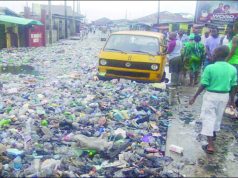Burden or Blessing: Re-examining the Waste Situation in Lagos (Part II)
*Ayodele Babalola
What could be done about a problem like Olusosun?
The Olusosun dumpsite is one of the biggest landfills in Africa covering 43 hectares with a depth of 18 metres. Since its existence, it has housed about 24.5 million tons of waste. It is reported that a population of about 5 million people live around 10km radius from the site and numerous problems like skin irritation, dysentery, water related diseases, nausea e.t.c have been reported by residents living around 3km radius from the site. Earlier this year, it was also reported that Olusosun will be closed down and transformed into parks and gardens for recreational activities.
Very recently, an NGO sued the Lagos State Government and the National Environmental Standards Regulatory and Enforcement Agency (NESREA) at the Federal High Court asking for the shutting down or relocation of Olusosun. The NGO claims that the dumpsite poses a threat to, and infringes on the fundamental rights to life and dignity of its members thereby violating Sections 33 and 34 of the Nigerian Constitution as well as Articles 16 and 24 of the African Charter on Human and People’s Rights. This suit presents the opportunity for the application of science to a fundamental rights action.
Globally, science is at the forefront of environment/climate based fundamental rights actions. Environmental and medical science is usually employed by litigants in establishing the link between an act/omission and public health/environmental concerns. In the US for example, 21 youths brought a suit against the federal government and fossil fuel companies for failing to protect their rights to life and liberty as well as that of future generations. Very recently, sixteen youths also filed a complaint with the United Nations Committee on the Rights of the Child claiming that Turkey, Germany, France, Brazil and Argentina are not protecting their fundamental rights through their failure to curtail emissions. Suits of this nature presents the opportunity to highlight the emissions problem and determine whether the government is doing enough in the areas of environmental protection, adaptation and mitigation. Actions which rely on science based evidence cannot be effectively conveyed through affidavits (without more). Evidence in fundamental rights actions in Nigeria are conveyed in affidavits. Since there is likely to be conflicting evidence in environmental based fundamental rights actions in Nigeria, oral hearing on the affidavits is appropriate. This will give litigants adequate room to articulate the science underlying such action and also assist the court in formulating sound climate policies through its judgment.
Climate change depreciation is now a legitimate concern for investors. Yes, there is a term like climate change depreciation. Cities are beginning to worry that a susceptibility to climate change could reduce investments. As ratings firms begin to focus on climate change and investors increasingly talk about the issue, those involved in the market say now is the time for communities to make serious investments in climate resilience or risk being punished by the financial sector in the future. Data on rising sea levels is becoming more relevant in financial decisions and climate-risk data firms are highlighting these risks to potential investors.
Olusosun presents an opportunity for Lagos to boldly move towards resilience through landfill reclamation and conversion to Africa’s first nature infused Smart Forest City. Before this is started, onsite waste should be excavated, processed and reused as part of the materials for development. This is after a thorough validation procedure has been carried out to ensure that the waste to be reused does not pose threats of ground-gas generation, ground settlement, harm to human health, and/or environmental pollution.
The Smart Forest City will involve reforesting the 43 hectare site and creating mixed use development that would be completely energy sufficient. A 43 hectare site can house well over 10,000 residents and 75,000 plants of different species. This development can be powered by solar energy to meet the residents’ needs while an internal electric vehicle transportation system (with charging stations) can be explored. This suggested development should serve as a test case for 100% renewable energy district, including power and transportation. It will also be the first large scale green housing and transportation project to be carried out by a subnational in Nigeria. Parking for traditional (fossil powered) cars would be located in a designated area outside the development while cars and tricycles powered by electricity will be used to transport residents. This will bring both economic and environmental benefits to Lagos – cleaner air, reduced emissions, green jobs, and green investments e.t.c A development like this should make a case for partnerships from Development Finance Institutions (DFIs).
Conversion of some landfills to electricity generating plants
One or some of the landfills in Lagos could be converted to an electricity generating plant. This makes sense because Lagos generates over 13,000 tons of waste daily but sees only a few hours of power supply from the grid. Methane from rotting food items is latent power. Many residents and businesses rely on petrol/diesel powered generators which increase the carbon footprint of the state. It was reported in 2013 that the waste in Olusosun will be converted to a 25MW project in five years (2018). Nothing has commenced yet.
On the other hand, the Ethiopian city of Addis Ababa has a beautiful story of converting waste to power. Ethiopia has Africa’s first waste to energy plant. The process entails garbage being kept in a bunker for about 5 days to allow the moisture to seep after which it is burnt at about 1000 degrees Centigrade to extract heat energy. This heat energy moves steam turbines that generate electricity. Gases that would have been major environmental pollutants are captured in the process and turned into inert materials. Five million people living in the city now breathe cleaner air and the plant generates power for 30% of the city’s homes.
Lagos does not need more dumpsites. Some of its dumpsites can be converted to electricity generating plants. Land is a limited resource which is increasingly becoming insufficient especially with population explosion. Electricity generation from waste can work side by side with insect farming. Food waste can be rechanneled to feed black soldier flies that will be captured and turned to chicken and fish feed.
Financing of projects like this is always an issue. However, there is an opportunity here for foreign and local investments. An investor (s) can facilitate the setting up of the power plant and do Embedded Generation in partnership with the state government and the relevant Disco. Embedded Generation entails providing power within a Discos network. The electricity generated will be used by the investor(s) while the excess will be supplied to the off-takers in collaboration with the Discos. The power sector is moving towards a collaboration/integration between the on-grid and off-grid sectors and this presents another opportunity to move further in that direction. For example, a global sports brand and a chicken/fish feed company can co-invest in setting up the waste electricity plant that will power the production activities of the sports brand and the feed company. Presently, no global sports brand is doing any producing/manufacturing in the whole of West Africa. This presents an opportunity for a global sports brand to establish its presence, and produce for a market that is riddled with counterfeits. Global sports brands can also work this same model out with other renewable energy companies (solar/wind) in the West African region. There is a massive untapped market/opportunity in the West African region for global sports brands. I can elucidate more on this.
Conclusion
The massive waste in Lagos presents an opportunity to transform a problem like waste pollution to solutions in areas like electricity, job creation, public health, environmental protection and sports development. The Lagos waste could remain a burden or become a blessing. It all comes down to effective policy direction and waste management.
* Ayodele Babalola is qualified to practice law in Nigeria and has an LL.M (Master of Laws) with specialization in Environmental & Energy Law and Public Law from the University of California, Berkeley. He is the Founding Partner, AOB Willows LP where he leads the Dispute Resolution, Environment & Elections Practice





Well articulated article addressing key environmental issue ( waste dump management) in Nigeria. A very informative read.
Thank you RUV!
Great article Ayodele! For clarification, are you suggesting that sports brands reuse these wastes for their products? Or did I miss the point?
Thank you Ibrahim. I am suggesting that they invest in coverting waste to energy which will in turn power their production activities.